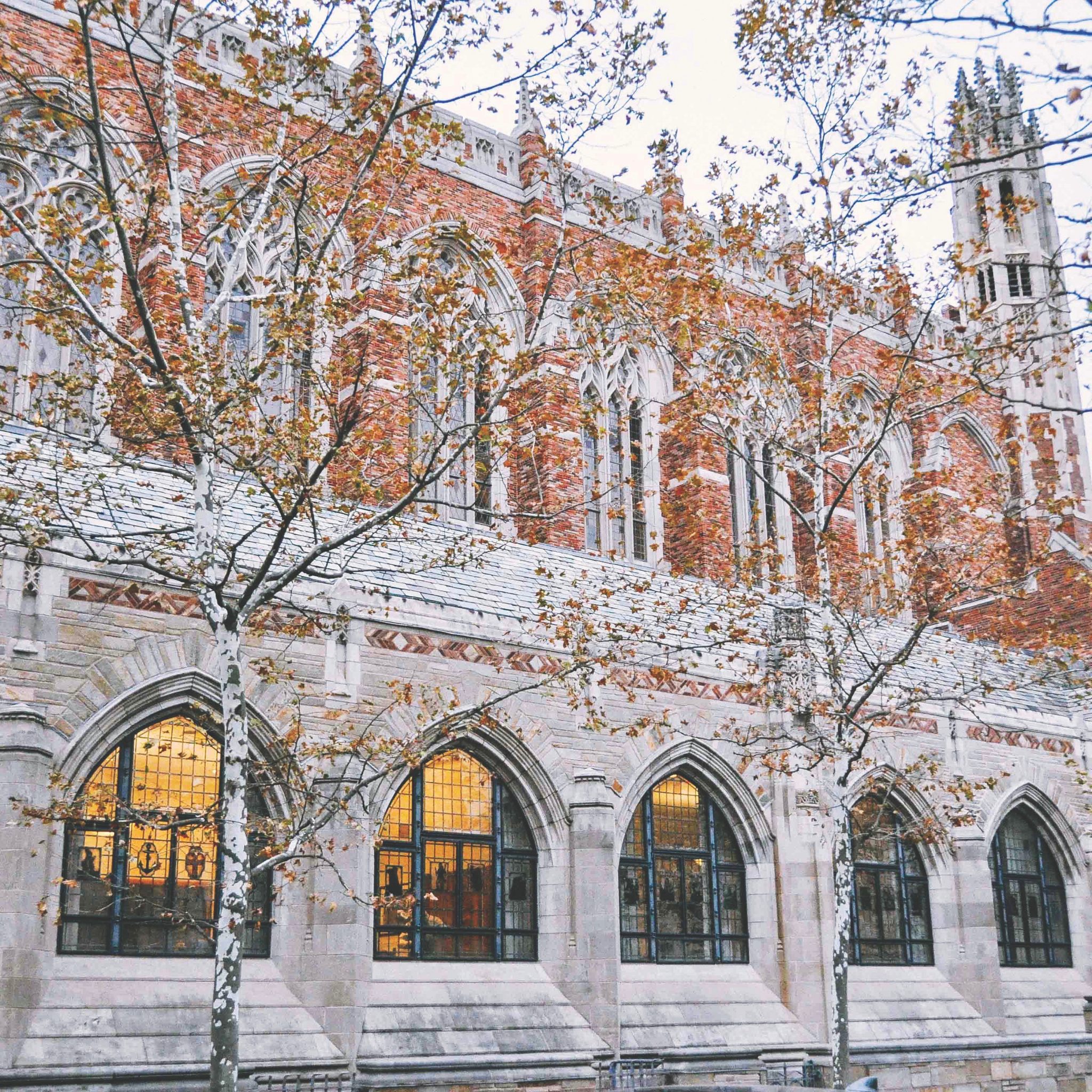
As the Senate prepares to vote on Brett Kavanaugh’s ’87 LAW ’90 nomination to the Supreme Court as early as this Saturday, some Yale alumni and professors have taken a public stand against his nomination.
A group of alumni titled “Yale Alumni Say No to Kavanaugh” released two videos via Facebook and Twitter to protest Kavanaugh’s nomination. One of the videos features self-filmed footage of alumni holding their hands over their mouths, and the other features alumni listing reasons why Kavanaugh should not be confirmed. The latter garnered more than 100,000 views since it was posted on the morning of Oct. 3.
At the same time, 33 current and former Yale professors were among more than 2,400 law professors who signed an open New York Times letter calling on the Senate not to confirm Kavanaugh as a Supreme Court justice. The letter was published in the paper on Wednesday, Oct. 3, with the intention of presenting it to the U.S. Senate on Thursday, Oct. 4. The letter stated that Kavanaugh does not “display the impartiality and judicial temperament requisite to sit on the highest court of our land.”
“[In his testimony,] Judge Kavanaugh was far too aggressive,” said Joshua Galperin, a research scholar and lecturer at Yale Law School who signed the New York Times letter. “He didn’t show an appropriate level of restraint and respect. But, most importantly, he demonstrated a real partisan anger, and that’s really something we don’t want to see in a judge.”
According to Galperin, he would not have signed such a letter even two weeks ago because he was not sure if the accusations against Kavanaugh were credible. He said that it was Kavanaugh’s “inappropriate performance” at his Sept. 27 hearing, in which Kavanaugh responded to Christine Blasey Ford’s allegations of sexual assault against him, that changed Galperin’s mind.
Yale Law School professor Judith Resnik, who also signed the letter, said that she believes in the independence of the Supreme Court and that a responsible Senate is “obliged not to rush [Kavanaugh’s] confirmation.”
Following the release of the New York Times op-ed, over 220 law professors, including seven Yale Law School faculty members, published an “Open Statement on Sexual Harassment from U.S. Law Professors” on Thursday night. The statement, which comes amidst concerns that the public often does not believe survivors of sexual assault, outlines 10 principles for addressing sexual harassment on an institutional level. The letter’s author was Yale Law School professor Vicki Schultz.
“The Court’s integrity would be compromised by confirming as a Justice someone who appeals to openly partisan considerations, displays open bias toward people who disagree with him, disrespects the U.S. senators questioning him — especially the female ones — and apparently lied or even misrepresented things about his past that bore on the veracity of his testimony,” Shultz said.
Schultz added that confirming Kavanaugh without a serious investigation into the women’s accusations against him would disrespect survivors of sexual assault. She added that the “apparent credibility” of the allegations warrants a fair hearing with corroborating witnesses — a process the Senate Judiciary Committee did not conduct.
In their videos, alumni also voiced their support for “survivors, justice, and the truth” according to one of the video’s descriptions. The first video, which has received more than 13 thousand views on Twitter as of Thursday evening, features videos of Yale alumni and current students holding their hands over their mouth with the last student, removing her hand to say, “I am speaking up for honesty under oath. Say no to Kavanaugh.” According to Erika Penzer Kerekes ’88, the gesture was referencing Ford’s testimony, in which she claimed that Kavanaugh put his hand over her mouth in order to silence her as he assaulted her.
“We were trying to show that we stand with survivors, and we believe Dr. Ford,” Kerekes said. “At the end, we’re taking our hand away and saying we’re not going to be silenced. We’re not going to be covered. We’re speaking up.”
The second video, released the day after the first one, incorporates statements from alumni, elaborating on why they are speaking up — to advocate for women, integrity of the court and immigrants.
The group tweeted their videos out to Cory Booker LAW ’97, Hillary Clinton LAW ’73 and the White House as well as other members of the Senate in attempts to influence their votes, according to Kerekes.
“We needed to leverage social media,” said Siphiwe Baleka ’96, who came up with the idea to produce the videos. “We needed to come up with something that could go viral and reach not just other Yale alums but the public. Particularly because when Kavanaugh tried to use Yale as a kind of shield, that was offensive to us.”
When Kavanaugh spoke before the Senate on Sept. 27, he underscored that he was “at the top of [his] class academically” and that he “worked [his] tail off,” referencing that he was admitted into both Yale College and Yale Law School.
The release of the videos comes on the heels of other organized activity from the group, including a protest on Tuesday, in which 50 Yale alumni gathered outside of the Yale Club of New York to protest Kavanaugh’s nomination.
The group also released a letter on Monday that expressed solidarity with Deborah Ramirez ’87, Ford, Julie Swetnick and “others who may courageously come forward with allegations of sexual misconduct against [Kavanaugh].” The letter received 1,500 signatures as of Thursday afternoon.
Jever Mariwala | jever.mariwala@yale.edu
Carly Wanna | carly.wanna@yale.edu
Correction, September 18: Due to a reporting error, a previous version of the article incorrectly stated that a Yale alumna pulls her hand away from her mouth at the end of the video. In fact, a Yale undergraduate student pulls her hand away from her mouth at the end of the video. Both videos also features current Yale college students.







